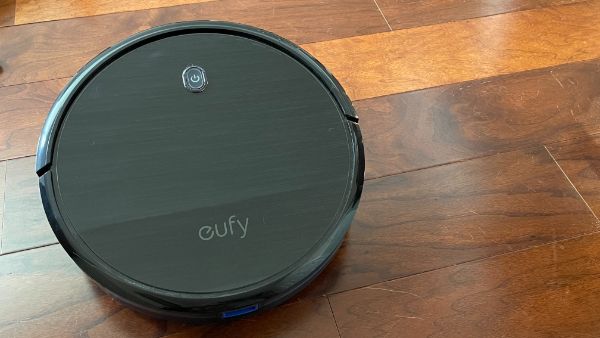Robot vacuums have revolutionized the way we clean our homes, providing convenience and efficiency in keeping our floors tidy. However, concerns about potential damage to hardwood and vinyl floors have left many homeowners hesitant to embrace this modern technology.
In this article, we will debunk the myths surrounding robot vacuums and their impact on hardwood and vinyl floors. We’ll explore the factors that determine whether a robot vacuum can scratch or harm these types of flooring and offer tips to ensure a seamless cleaning experience.

Table of Contents
The Role of Wheels and Brushes
One common concern about robot vacuums is the possibility of their wheels and brushes causing scratches on delicate flooring surfaces. It’s essential to consider the quality and design of the robot vacuum before making a purchase. High-quality robot vacuums are equipped with rubberized wheels and soft brushes that are specifically designed to be gentle on hardwood and vinyl floors. These features minimize the risk of scratching while effectively removing dirt and debris.
However, it’s important to note that not all robot vacuums are created equal. Some budget-friendly models may have hard plastic wheels and stiff brushes that could potentially cause scratches on more delicate flooring surfaces. Therefore, investing in a reputable brand with positive customer reviews and a track record of floor-friendly designs is crucial to avoid any potential damage.
Sensors and Navigation Technology
Modern robot vacuums are equipped with sophisticated sensors and navigation technology to help them maneuver around obstacles and adjust cleaning settings accordingly. These sensors play a vital role in preventing the vacuum from colliding with furniture, walls, and fragile floorings, thus reducing the risk of scratches.
The advanced sensors and software in high-quality robot vacuums enable them to recognize changes in floor types and adjust their cleaning techniques accordingly. For instance, when transitioning from carpet to hardwood or vinyl, a good robot vacuum will detect the change and adjust its brushes and suction power to suit the new surface.
Regular Maintenance and Cleaning
Proper maintenance and cleaning of your robot vacuum are essential for preventing potential scratches on your hardwood and vinyl floors. Ensure you follow the manufacturer’s instructions for regular maintenance, such as cleaning the brushes and replacing filters as needed. Dirt and debris accumulated in the vacuum can become abrasive and increase the risk of scratching your floors.
Additionally, check for any debris or foreign objects stuck to the wheels or brushes before each use. Pebbles, sand, or other particles can become lodged in the vacuum and scratch your floors as it moves around.
Height Adjustment and Avoiding High-Traffic Areas
Many robot vacuums come with height adjustment features that allow you to customize the vacuum’s clearance from the floor. When cleaning hardwood and vinyl floors, set the robot vacuum to the appropriate height to prevent unnecessary friction and scratching.
Furthermore, consider avoiding high-traffic areas during robot vacuum cleaning sessions. Heavy foot traffic can introduce more dirt and debris, which increases the risk of scratches. Prioritize cleaning these areas manually or setting the robot vacuum for a deeper cleaning session after the high-traffic hours.
Regular Manual Cleaning and Floor Maintenance
While robot vacuums can be incredibly helpful in maintaining clean floors, they are not a substitute for regular manual cleaning and floor maintenance. Sweeping or dusting your hardwood and vinyl floors at least once a week will help prevent the accumulation of abrasive dirt and debris, minimizing the risk of scratches.
Additionally, follow the recommended cleaning and maintenance guidelines for your hardwood and vinyl floors to keep them in top condition. This may include using appropriate cleaning solutions and avoiding excessive water or harsh chemicals that could damage the flooring.
—
In conclusion, robot vacuums can be an excellent addition to your cleaning routine, offering convenience and efficiency in maintaining tidy floors. When it comes to hardwood and vinyl floors, the key to preventing scratches lies in investing in a high-quality robot vacuum with floor-friendly features, advanced sensors, and adjustable settings.
Regular maintenance, cleaning, and following manufacturer instructions are essential to ensuring a seamless cleaning experience without any damage to your precious flooring surfaces. By choosing the right robot vacuum and taking proper precautions, you can enjoy the benefits of this modern cleaning tool without worries about scratches on your hardwood and vinyl floors.
